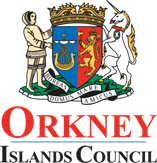How Orkney Islands Council is tackling housing affordability, education accessibility and fuel poverty
The integration of CACI’s Paycheck into Orkney Islands Council’s operations has yielded transformative outcomes

Background
Orkney Islands Council is the smallest council in the United Kingdom, situated on Scotland’s north-east coast. With a population of approximately 22,000 people, it spans 70 square miles and encompasses 22 inhabited islands. Orkney Islands Council supplies all local authority services for the archipelago, including education, roads, housing, waste collection and more.
Of the many areas of support that the Council provides, three of the focus areas have been to update the Housing Need and Demand Assessment (HNDA), to receive approval to support families and children in need through education and tackling fuel poverty. To address these priorities, the Council needed accurate, up-to-date, and consistent information that would help benchmark Orkney against other parts of the country.
The Challenge: Lack of robust, credible information due to small yet widespread population
One of the greatest challenges for the Council has been Orkney’s small yet widespread population. This has complicated the acquisition of statistical information – particularly information that is robust and credible. Slight changes in population size can considerably sway numeric results, which has hindered the Council’s benchmarking capability and innate understanding of the financial realities of Orkney’s inhabitants.
David Brown, Service Manager (Resources) within Education, Leisure and Housing at Orkney Islands Council, elaborated on the impact this lack of decipherable data has had on the Council and the population financially.
“One of the difficulties within Orkney is that we are very spread out. We have deprivation, but there’s nothing indicating that we have a particular housing estate or area where we need to put resources,” he explained.
The Solution: Paycheck enables updates to the Housing Need and Demand Assessment (HNDA) and supplies granular insight on housing affordability
Paycheck gives the Council a unique, granular point of view and information that has enabled their benchmarking against other local authorities and how Orkney compares to other parts of the country. Through Paycheck data, the Council has also been able to update their HNDA, a document that analyses the projection of Orkney’s population over the next five to twenty years which helps the Council establish the necessary housing and school programmes. The information within this document looks at the affordability of housing, which correlates with residents’ income, coupled with demand.
The Council assesses residents’ incomes against the likelihood of owner occupiers and current housing availability for those seeking private rentals, mid-market rentals and social rentals. This supplies insights that evidence decision-making linked to residential building programmes and determine how fast growth can be delivered.
This has been complicated by the fact that the population across the group of islands is increasing at the same rate as the whole of Scotland at 6%, with vast differences between life on the islands and on mainland Scotland. Orkney residents must adapt to much greater extenuating circumstances that come with higher costs, and the Council has had to find a way to prove these differences through data to the Scottish government. Paycheck has bridged this gap by providing an accurate representation of the current circumstances in Orkney, enabling the Council to strategise and plan for the most suitable house build programmes that have been acknowledged and approved by the government.
The Benefits
The integration of CACI’s Paycheck into Orkney Islands Council’s operations has yielded transformative outcomes, with its robust and credible data supplied proving to be key in decision-making processes. Notably, Paycheck has streamlined the approval of the HNDA, securing the necessary signoff from the Scottish government. Without this approval, the Council would have had to revisit and overhaul the entire HNDA, which would have resulted in a substantial loss of time and resources. Paycheck’s precise income
models and predictive capabilities have played a crucial role in ensuring that the HNDA remains accurate and credible.
Paycheck has also been instrumental in redefining residents’ financial realities in light of fuel poverty. It equips the Council with accurate data on residents’ earnings, enabling a greater understanding of communities that are at the most risk with rising fuel costs and may need Council support. The reallocation of resources in education has also been supported by Paycheck. By analysing school catchment areas and identifying pockets of deprivation, the Council can allocate resources to ensure access to education, fostering a more inclusive and supportive learning environment.
Ultimately, Paycheck has become an indispensable tool for the Council to address the triad of housing affordability, fuel poverty and education accessibility in a comprehensive, data-driven capacity.
Read the case study
You can access and download the full case study here. If you have any questions or want to learn more about CACI’s solutions, please get in touch with us.